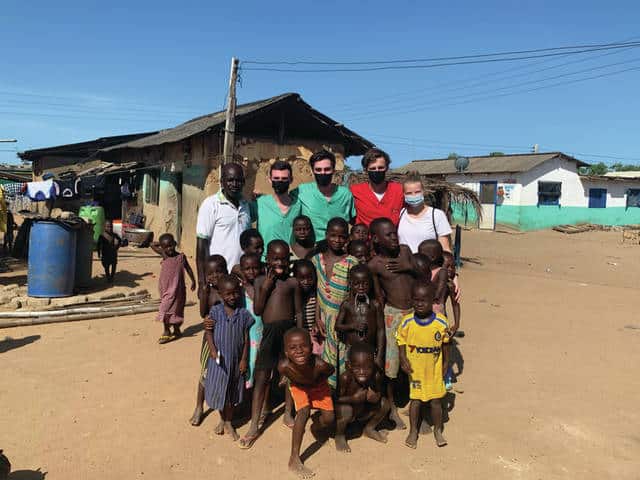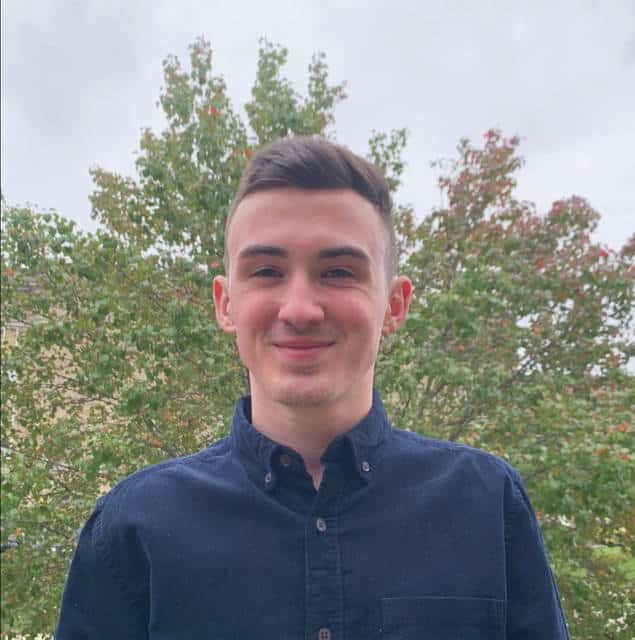
Mason Darner, back row, second from left, stands with his fellow Doctors Without Borders and patients served during his stay in Ghana during May. Darner assistent with general surgery in government hospitals, as well as a malaria testing clinic.

Darner
PIQUA — Spending a month in Ghana was an experience Mason Darner says was, in a word, humbling.
“It was very humbling, sobering and eye-opening to be able to interact with people who have far, far less than anybody else here. I definitely came back with a whole new mentality, not only about healthcare, but life in general,” Darner said.
Darner, of Piqua, is a medical student at the Ohio State University with a focus in neuroscience, and is part of the university’s Doctors Without Borders/Medecins Sans Frontieres Friends of MSF chapter. He was one of nine students chosen to travel to Ghana, Africa, in May and provide healthcare in government hospitals, as well as assisting in a free malaria test clinic that Doctors Without Borders helped fund. Patients who tested positive for malaria were given medication and a treatment plan.
“I’ve always been interested in healthcare, but I also have always been very compassionate and interested in helping out various communities and under-served populations. That’s obviously one of the big things that Doctors Without Borders does, and that always kind of enticed me,” Darner said.
The differences in healthcare available in Ghana compared to the United States was eye-opening for Darner; as a developing country, much of what they have equipment-wise is dated, worn down, and the doctors and healthcare workers often have to improvise and come up with ways they can best use the resources they have to provide adequate care.
“They really rely on donations and funding from different organizations to keep them running,” Darner said. “You really start to understand what we take for granted when you’re living in those conditions.”
Something that stuck out to Darner was the lack of use of painkillers. While working in general surgery at one of the hospitals, a mother in labor was rushed to the operating room to have an emergency cesarean section. At another point, a young girl had to have a partial amputation of three of her toes. Both procedures were done without painkillers, due to the urgency of the situation as well as a short supply of painkillers.
“They really can’t give medications, specifically pain medications, to anybody who’s in pain. Witnessing that little girl’s dad having to hold her down while they sutured on three of her toes without any pain medication, that was a memory that I’ll hold onto for sure. It was very sobering,” Darner said.
The experience, as a whole, has shown Darner that it’s important to have an understanding that every patient comes from a different background and it’s important to remain compassionate with everybody, and open-minded with medicine.
“While here in the United States, we do have a lot at our disposal, that’s not the case throughout the world and even in certain places here in the U.S. I’m just grateful for what we do have,” Darner said.
Since Darner has returned to the states, he’s made sure to reflect on one thing that he’s grateful for each morning when he wakes up, and he tries to keep that in mind throughout the day.
“If there’s ever a time where I’m troubled or upset, I just think back to how small our problems truly are,” Darner said. “That’s been one of the main things since coming back that I’ve been implementing.”


